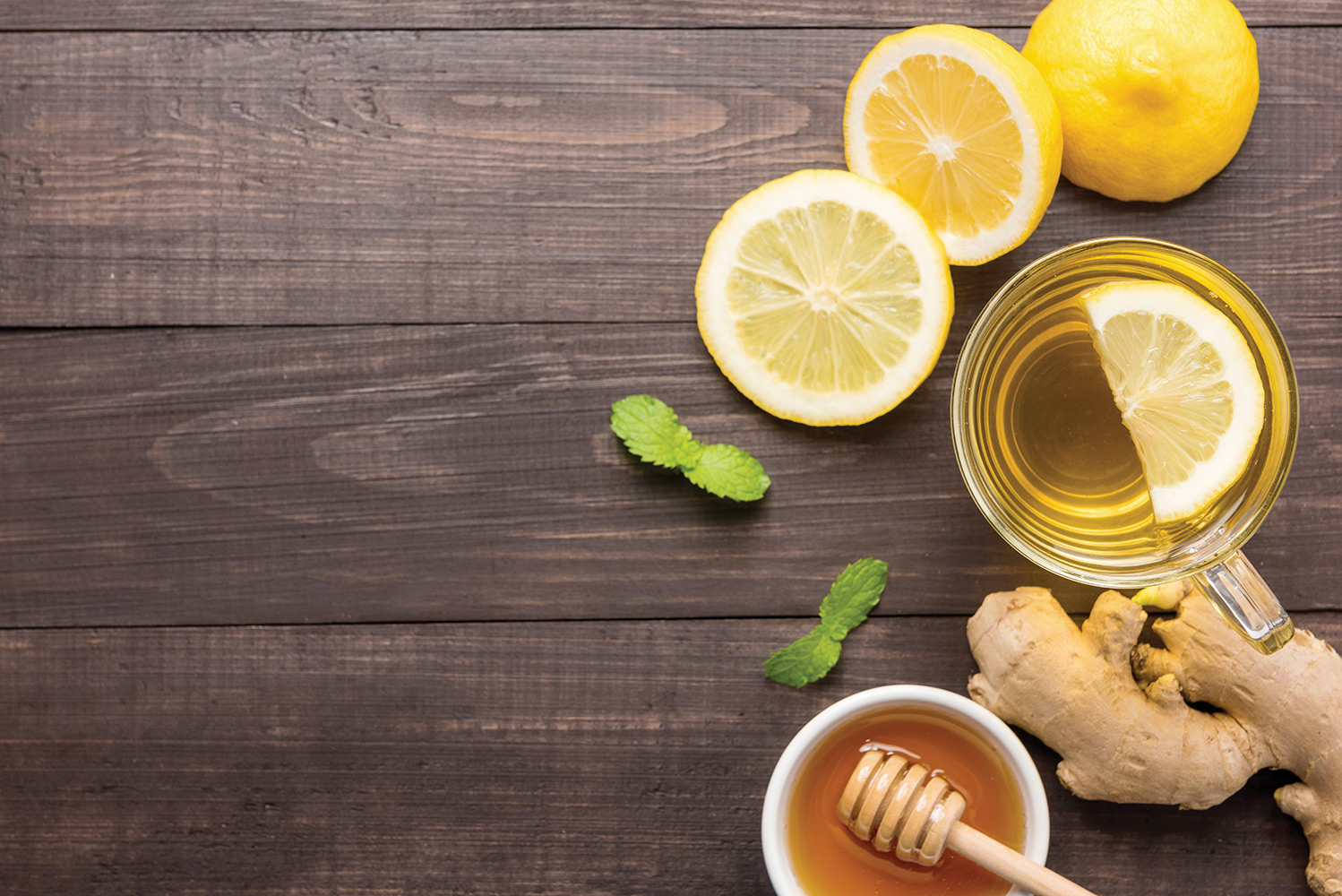The Detox Dilemma

Separating fact from fad.
Dieting has been part of our lives for centuries, with fad diets becoming part of popular culture in the late ’80s. We’ve gone from carb cutting to paleo to volumetrics with some truly crazy diets in between. One method of “healthy living” that has lately increased in popularity is detoxing.
What is it?
Detoxing tries to rid the body of harmful or toxic chemicals by drinking or eating certain things. A few examples: drinks made from lemon juice, cayenne pepper, and maple syrup; fruit and vegetable smoothies; and specially formulated juices infused with vitamins. Different products and approaches are each meant to cleanse different parts of your body, including the colon, liver, kidneys, and skin.
Why detox?
The CDC compiled a report in 2010 on the different chemicals found in our bodies. 212 chemicals were found, including:
- Acrylamide — found in secondhand smoke and fried foods
- Arsenic — well-known toxin formerly found in rat poison
- Environmental phenols – found in plastics, resins, toothpaste, and hand soap
- Perchlorate – found in explosives and airplane fuel
- Perfluorinated chemicals – found in nonstick cookware
- Polybrominated diphenyl ethers – found in mattresses and fire retardants
- Volatile organic compounds – found in paints, air fresheners, cleaning products, cosmetics, upholstery fabrics, carpets, dry-cleaned clothing, wood preservatives, and paint strippers (list from The Huffington Post).
The popularity of detoxing has increased with the endorsements of celebrities like Beyonce, Gwyneth Paltrow, Anne Hathaway, and more. With the prevalence of preservatives and chemicals in food and other daily products, knowing how our bodies react is an understandable concern. Cleansing and detoxing, by name alone, sound appealing: ridding your body of these artificial chemicals and toxins with a 48-hour or three-day process seems like a quick and easy way to live a healthier, happier life.
Does it work?
The conclusion of many nutritionists, dieticians, and doctors is that while detoxing isn’t harmful, it isn’t useful.
The benefits seen after cleansing or detoxing comes more from what you are eliminating from your lifestyle (alcohol, tobacco, junk food) than the ridding of toxins. Your body, through your liver, kidneys, and other organs, naturally removes harmful substances. The different cleansing products (juices, smoothies, etc.) do not actually jumpstart or affect these natural processes. According to the Mayo Clinic’s Katherine Zeratsky: “Some people report feeling more focused and energetic during and after detox diets. However, there’s little evidence that detox diets actually remove toxins from the body. Indeed, the kidneys and liver are generally quite effective at filtering and eliminating most ingested toxins.”
Keri Glassman, a registered dietician, gave CBS’s “The Early Show” her problems with detoxing:
- They can cause people to lose weight too quickly.
- People will then put weight back on.
- Many of the diets lack essential nutrients.
- Many of them cause the loss of electrolytes.
- Side effects could include fatigue, headaches, vomiting, and nausea.
- Some diets mean you starve your body.
There’s no scientific evidence to suggest our bodies need help to get rid of waste products if we’re healthy, and there’s little proof to support the claims that detox diets work. If someone follows a strict detox diet over the long-term, it could lead to nutrient deficiencies and health problems; however, if used for a short time, a detox or cleanse can jumpstart a lifestyle change, rather than a physical change.
Should you detox?
Be smart. As with most diets, you should consult your doctor before changing your eating habits drastically. If coupled with a well-balanced diet and proper nutrients, a detox can benefit your frame of mind when attempting to create a healthier lifestyle.
Do not cleanse for long periods of time. Cleanse for a couple days at most. The only proven way to build and maintain a truly healthy lifestyle is to eat a balanced diet and exercise.
Do your research. Look into the different methods of detoxing or cleansing and decide which one suits your tastes and lifestyle the best. Nothing works if it doesn’t fit.
Three Detox Myths
from Women’s Health
- Detox Myth 1: Certain liquid diets can push out toxins.
Nope. No fad diet can eliminate harmful invaders faster than your built-in clean-up crew (the liver, kidneys, and colon). “The best ‘cleansing’ strategy is a proper diet, regular exercise, and not smoking,” says Stephen Dahmer, M.D. - Detox Myth 2: Drinking loads of water detoxes the body.
H2O hydrates the liver and kidneys and encourages toxins to leave the body via urination. However . . . guzzling excessively in the name of detoxing can be just plain dangerous. Symptoms of “water intoxication” include headache, fatigue, vomiting, and mental disorientation. “Drink nine 8-ounce glasses of water spaced throughout the day,” says Connie Diekman, R.D. - Detox Myth 3: You can sweat out toxins with serious sauna time.
It’s true that a small amount of toxins can leave the body via perspiration, but keep this in mind: “Very heavy sweating can impair the body’s natural detox system, making it less efficient,” says Dahmer. “You’ll do more detoxing in the bathroom than you ever could in a sauna.”


